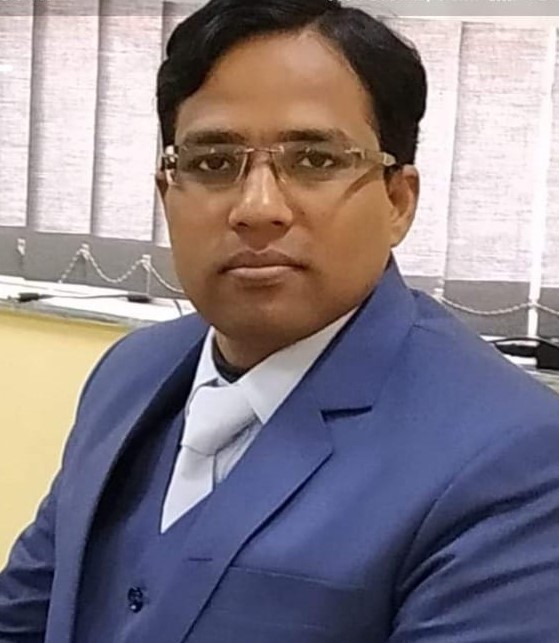
The issue of Muslim reservation is once again at the center of debate amid the 2024 Lok Sabha elections. There are those who advocate for offering reservations to all Muslims, while others advocate abolishing reservation for all Muslims based on religious identity. Muslim reservations have always been an incomprehensible puzzle. There have been debates on this from society to courts. First of all it should be understood that after the implementation of EWS (Economically Weaker Section) reservation, there is no Muslim section which is outside the scope of reservation, that is, almost all classes of the Muslims are already taking the benefits of reservation. (Facts of Muslims Reservation)
It should be noted that reservation in the name of religious identity is against the basic spirit of the Constitution, no religion is Poor, Backward or Dalit, but its followers could be Poor, Backward and Dalit, keeping in mind that in the EWS, OBC and ST category of reservation, all Muslims were included along with those who do profess other religions.
However, Christian and Muslim Dalits (they have been kept in OBC) are still excluded from the reservation of SC category on the basis of religious identity. This matter is pending in the Supreme Court for the last 23 years and the Central Government has constituted a two-year tenure and three-member commission and has asked for a report on this entire issue. (Facts of Muslims Reservation)
In the South Indian states, especially Tamil Nadu and Kerala, almost all Muslim castes have been included in the OBC reservation, which does not seem fair. It is noteworthy here that the socio-politically and economically strong Muslim castes (Ashraaf) have been excluded from the central OBC list of these respective states, which is also justified.
Strong Muslim castes (Ashraaf Muslims) should be excluded from the reservation list of these states so that only eligible castes and communities of muslims (Pasmanda Muslims) get the benefit of reservation. For this, the OBC list of the respective states should be prepared on the lines of the Central OBC list.
Last year, the BJP govt of Karnataka abolished category 2B(4%) allotted exclusively for Muslims under OBC reservation and shifted the Muslims coming under it to EWS (10%) and 4% of 2B was divided into two equal parts and given to other OBC categories 3A (now 2C) and 3B (now 2D). (Facts of Muslims Reservation)
This decision of the government was later challenged in the court. This reservation was purely based on religious identity, even on the certificates made for this category, “Muslim” was written instead of the caste, which was not constitutional.
It may be noted here that most of the Pasmanda castes of Muslims eligible for reservation as per social justice have already been placed in category 1 (4%), 2A (15%) of OBCs and ST (7%), which is still intact. That means, like before, Pasmanda castes are getting the benefit of 19% reservation for OBC and 7% for ST.
As far as the OBC category BC-E (4%) of Telangana and Andhra is concerned, only 13 Muslim backward castes (Pasmanda) identified on the basis of educationally and socially backwardness are included, not on the basis of religious identity.
BC-A and BC-B already include eligible backward castes of Muslim community like Mehtar, Dudekula, Noorbash, Pinjari along with backward castes of other religions. Similarly, only the deprived castes of Christianity are registered in category BC-C.
The inclusion of only Muslim and only Christian backward castes in these two categories creates the illusion that this reservation is on the basis of religion whereas it is completely on the basis of educational and social backwardness as per the constitutional intention. (Facts of Muslims Reservation)
To remove this confusion, the OBC classification can be reconsidered and secular classification can be done. Apart from this, in other states of the country, not all Muslims but only the deprived castes of the Muslim society were included in the reservation of OBC and ST.
According to the Sachar Committee, inequality still exists in the central and state lists of OBC reservation. This is a simple complaint which is not limited to Muslims only. Irrespective of religious identity, there are many OBC groups which are in the state list but not in the central list.
For example, in Madhya Pradesh, 95 social groups recommended by the State Backward Classes Commission have been included in the OBC list, but out of these, only 65 groups have got a place in the Central List. 74 castes are included in the OBC list of Uttar Pradesh but only 65 castes are included in the Central list.
Such diversity is also found in the situation of Muslim OBCs too. For example, 37 communities are included as Muslim groups in the state list of Madhya Pradesh, but only 27 of them are in the central list. (Facts of Muslims Reservation)
After the renewal of the lists in Bihar, there are 17 OBC groups which have not found a place in the central list. In Uttar Pradesh, two Muslim groups – Mirshikar and Nanbai have not found a place in the central list.
Muslim groups in Gujarat such as Jilaiya, Tariyatai, Mansoori, Barab, Soomra, Tarak Kalal and Nahwaiya are in the state backward class list, but not in the central list. Similarly, in Maharashtra there are many Muslim groups like Mansoori, Pan Farosh, Atar, Muslim Madari, Muslim Gawali, Darveshi, Hashmi (Dafali), Nalband which have not found a place in the central list.
Even in the OBC lists made by state governments, there are many deprived castes and communities who have not found a place in the list. There are some Muslim groups which have got a place in the Central list but which are yet to be included in the State list. Kalwar in Bihar, Munsoor in Rajasthan, Atishbaaz in Uttar Pradesh, Raini, Kalwar, Rangbaaz and Churihar in West Bengal are examples of such Muslim communities. There are still many groups which have not been able to find a place in either the center or the state list.
It is justified that the upliftment of the deprived castes of the Muslim society (Pasmanda) should be in accordance with their social, educational, political and economic backwardness, irrespective of their religious identity.
That is why it is appropriate that by removing paragraph 3 of Article 341, Dalits following Islam and Dalits following Christianity should also be included in SC reservation and like OBC reservation, there should be creamy layer and classification in SC reservation too. (Facts of Muslims Reservation)
The powerful Ashraaf castes (the ruling class of muslims) should be thrown out of the OBC reservation in the major states of South India, such as Karnataka, Tamil Nadu and Kerala, and efforts should be made to correct the discrepancies in the caste lists of the central and state governments as shown by the Sachar Committee.
According to Justice V Eswaraiah, former Chairman of the National Commission for Backward Classes and former Chief Justice of Andhra Pradesh High Court, the Other Backward Classes of the Center and the States should be divided into three groups so that the path of social justice is paved in the Muslim society and reservation does not become an issue of Muslim communalism under any circumstances.
(Dr. Faiyaz Ahmad Fyzie is Author, translator, columnist, media panelist, Socio-Pasmanda activist and medical doctor by profession.)
Read Also: Do you know about ‘Wives of Quran’
(You can also follow us on YouTube, Dailymotion, Twitter, Facebook, Instagram)



